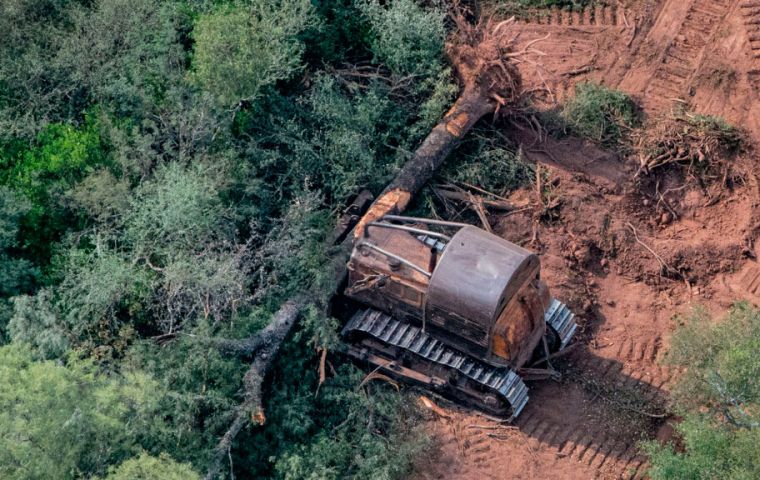MercoPress. South Atlantic News Agency
Argentina objects to EU's deforestation “standard” risk rating
 Argentina was ranked alongside Brazil and Paraguay but riskier than Uruguay
Argentina was ranked alongside Brazil and Paraguay but riskier than Uruguay Argentina has formally objected to the European Union's preliminary classification of the country as a “standard risk” under the EU Deforestation-Free Regulation (EUDR). The regulation, set to take effect in 2026, aims to ensure that consumer products imported into the EU, such as soybeans, beef, timber, and cocoa, do not originate from deforested areas after December 31, 2020.
Buenos Aires argues that the classification is “unilateral and unjustified,” as the country meets the technical criteria for a “low risk” designation under Article 29 of the regulation and emphasized Argentina's strong record in forest governance, product traceability, and environmental legislation, warning that the standard risk rating could harm exports.
Hence, Argentina is pursuing diplomatic and technical negotiations with the EU to seek a reclassification before the regulation's full implementation in December 2025. The government and private sector have also submitted a report to EU authorities providing data to support a “low risk” designation.
Additionally, Argentina highlights that its commitments on deforestation within the South American Common Market (Mercosur)-EU Association Agreement were disregarded in the risk assessment.
The Argentine government of President Javier Milei has thus requested a bilateral dialogue with the EU to discuss the regulation's implementation, emphasizing that the current classification presents an unjustified trade barrier since the South American country should be considered “low risk.”
Mercosur partners Brazil and Paraguay were also deemed to fit within the “standard” risk category, while Uruguay was granted “low risk” status.




Top Comments
Disclaimer & comment rulesCommenting for this story is now closed.
If you have a Facebook account, become a fan and comment on our Facebook Page!